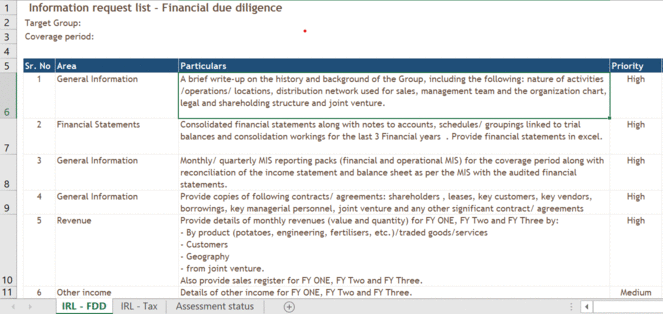FixedAssets Tracker
This comprehensive guide provides step-by-step instructions on creating and maintaining a Fixed Assets Register, essential for effective asset management in any organization. Perfect for accountants, business owners, and financial managers, this document includes:
1. Identifying Fixed Assets:
- Understanding what constitutes a fixed asset.
- Examples include buildings, machinery, vehicles, furniture, and computers.
2. Essential Information to Record:
- Asset Description
- Unique Identification Number
- Date of Purchase
- Purchase Cost
- Supplier Information
- Location
- Depreciation Method
- Useful Life
- Residual Value
- Accumulated Depreciation
- Current Book Value
- Maintenance Schedule
3. Format Choices:
- Manual Register (physical ledger)
- Spreadsheet (e.g., Microsoft Excel, Google Sheets)
- Fixed Asset Management Software
4. Setting Up the Register:
- Creating columns for each piece of information.
- Organizing data for easy access and updates.
5. Implementing Depreciation Calculations:
- Choosing the appropriate depreciation method (e.g., straight-line, declining balance).
- Calculating and recording depreciation periodically.
6. Maintaining and Updating the Register:
- Regular updates for new acquisitions, disposals, and transfers.
- Periodic reviews and adjustments of depreciation.
- Regular audits to ensure accuracy and completeness.
7. Best Practices:
- Consistency in methods and formats.
- Ensuring accuracy and up-to-date entries.
- Protecting the register from unauthorized access.
- Regular backups to prevent data loss.
This guide ensures your asset management is thorough, accurate, and compliant with financial regulations, helping you to track asset value, plan maintenance, and ensure accurate financial reporting.
---
Feel free to use this summary note in your document or YouTube video description. If you need further customization, let me know
https://youtu.be/4sXZkyzwjTw
FixedAsset Tracker 2024
FixedAsset Tracker 2024 is a cutting-edge asset management software designed to simplify and streamline the tracking of your organization’s fixed assets. Whether you manage a small business or a large enterprise, this powerful tool offers a comprehensive solution for monitoring, managing, and optimizing your asset portfolio.
With FixedAsset Tracker 2024, you can effortlessly keep track of all your assets, from acquisition to disposal. The intuitive interface allows you to categorize assets by type, location, and status, ensuring that you always have a clear overview of your asset inventory. The software supports barcode and RFID integration, enabling quick and accurate asset tagging and scanning.
Advanced reporting features provide detailed insights into asset performance, depreciation, and lifecycle, helping you make informed decisions and maximize the return on your investments. Automated alerts and reminders for maintenance schedules, warranties, and lease expirations ensure that nothing falls through the cracks.
Designed with security in mind, FixedAsset Tracker 2024 offers robust data protection, ensuring that your sensitive information is always safe. The software is also fully customizable, allowing you to tailor it to your specific business needs.
Upgrade to FixedAsset Tracker 2024 and take control of your asset management like never before.
https://www.youtube.com/watch?v=mcTJhVPAf6g















